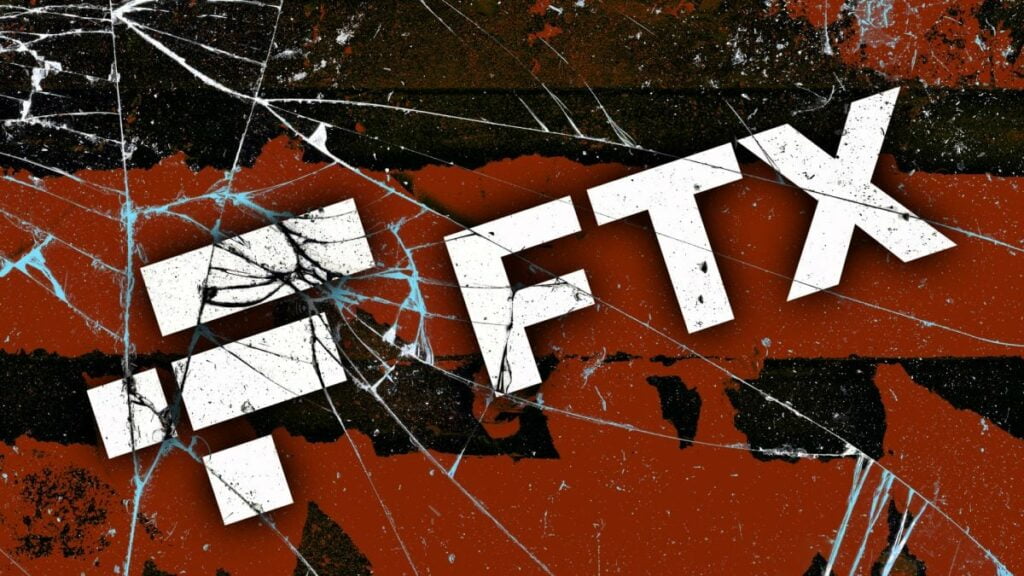The FTX crash has significantly damaged both the crypto and broader financial ecosystems. These include clients as well as venture capital firms that invest in FTX. In addition, altcoin projects owned by FTX and Alameda Research have also been eroded by the risk of selling pressure.
FTX crashed, leaving a wreck behind
cryptocoin.comAs you follow, FTX and its affiliated trading company Alameda Research have been exposed. The CoinDesk article revealed Alameda’s troubled financial situation on Nov. Thus, it set in motion a series of events that exposed FTX as insolvent.
Former FTX CEO Sam Bankman-Fried secretly used client funds to save FTX’s sister company, Alameda Research. This resulted in an estimated $10 billion hole in the exchange’s books. Worse still, Bankman-Fried covered up his fraudulent activities for months. As such, it has kept investors, customers, and even its own employees in the dark until FTX declared bankruptcy on Nov. In the wake of arguably the most shocking scam in crypto history, let’s take a look at who and what lost the most from Sam Bankman-Fried’s massive scam.
First FTX losers venture capital firms
Coinbase Ventures, Sequoia Capital and Paradigm
In its heyday, FTX attracted large investments from some of the world’s leading and well-funded venture capital firms. In July 2021, the exchange raised $900 million at a valuation of $18 billion from more than 60 investors, including crypto heavyweights such as Coinbase Ventures, Sequoia Capital, and Paradigm and others. Many of these investors doubled FTX in the last round of funding in January 2022. It also added $32 billion in value to the company.
Softbank, VanEck, Temasek and Galaxy Digital
FTX’s gains stood out from those of other crypto companies with the participation of high-ranking non-crypto venture firms. Softbank, VanEck and Temasek bought FTX shares in one of the company’s multiple funding rounds. According to Crunchbase data, FTX has sold a total of approximately $1.8 billion in equity during its three years of operation. Now the company is bankrupt. That’s why it owes billions to creditors. However, FTX shares are nearly worthless.
At the time of its collapse, the three largest FTX stakeholders were Sequoia Capital with 1.1% and Temasek and Paradigm with 1% each. In total, these three venture firms have invested a total of $620 million in FTX. Additionally, many startups that have invested in FTX have also used their services to hold cash and crypto assets. However, only a handful of these firms have publicly disclosed their additional FTX risks. On November 9, Galaxy Digital CEO Mike Novogratz told CNBC that his firm had $76.8 million in cash and digital assets invested in FTX at the time of the collapse. However, he noted that his firm is in the process of withdrawing $47.5 million of this amount. However, in light of the corruption that has emerged in its last days, it is unlikely that FTX will meet this withdrawal.

Multicoin Capital
Multicoin Capital, another prominent FTX stock investor. The company reported that 10% of its total assets under management were trapped in FTX before the stock market declared bankruptcy. Crunchbase data shows that Multicoin has raised $605 million through three separate funds. This implies that he lost at least $60 million from his investment in FTX.
It’s hard to know how much they lost collectively from the FTX crash, as many startups are not required to publicly disclose the exact amounts of their investments and losses. However, with the evidence at hand, venture capital losses appear to amount to billions of dollars.
Solana ecosystem severely damaged
SRM and LEFT
Sam Bankman-Fried’s FTX empire was heavily intertwined with the Solana ecosystem. As a result, high-throughput Blockchain suffers greatly. When Solana exploded behind the alternative Tier 1 narrative in August 2021, the native SOL token rose in value along with many Solana ecosystem tokens. One such project was Serum, a Solana-based central limit order book exchange, co-founded by Bankman-Fried and invested by Alameda Research.

While the serum was initially gaining in value, its predatory tokenomics, which gave large amounts of native SRM tokens to early investors like Alameda, caused its value to bleed. Alameda sold large volumes of SRM to the market during the 2021 bull run. Despite this, it was holding more than two billion tokens as collateral against loans at the time of bankruptcy. He also had large SOL positions that Alameda and FTX would face liquidation. Other coins held by Alameda and FTX are at the same risk. cryptocoin.comAs you will see from this article of . Now FTX and Alameda are bankrupt. These tokens will almost certainly be available for sale on the open market. This will drive prices down even more.
Solana-based WBTC and WETH and other altcoins
FTX’s relationship with Solana has gone beyond promoting Blockchain and investing in its protocols. FTX has also created Solana-based Wrapped Bitcoin and Ethereum tokens backed by its reserves. Its purpose was to aid the adoption of DeFi. Both bundled tokens were widely used in the Solana DeFi ecosystem. However, as it turned out that FTX was facing a liquidity crunch, FTX-backed WBTC and WETH began to leave de-peg. After FTX declared voluntary bankruptcy on November 11, it became clear that FTX no longer holds real Bitcoin and Ethereum in reserve. That’s why these tokens crashed. Last week, Solana WBTC fell 93% to $1,363, and WETH fell 83% to $257. At the moment, there is little hope that both assets will return to steady state.
One final way FTX is hurting Solana is Alameda Research’s investments in ecosystem projects. Several confirmatory reports indicate that under investment conditions, protocols are required or heavily incentivized to store their treasures in FTX. This practice not only left many projects high and dry after FTX’s bankruptcy, but also fueled the wider fraud that took place on the exchange. As it turned out when FTX went bankrupt, Alameda was using the exchange’s client funds for investments.

FTX customers
The biggest loser of the whole fiasco was the average customer. Many FTX users have lost their savings believing the exchange is safe. Shark Tank’s Kevin O’Leary and Jim Cramer’s comparison of Bankman-Fried to JP Morgan also helped build confidence in the stock market.
As reports vary, it’s hard to estimate how much customers who hold funds in FTX lose. But the number is probably in the billions. The figure will likely be exacerbated by Bankman-Fried’s tweets that have since been deleted in the run-up to FTX’s bankruptcy. The former CEO of FTX assured users that the assets held on the exchange are fully supported at a 1:1 ratio. Thus, it discouraged users from withdrawing funds. In retrospect, these tweets turned out to be bald-faced lies.
But it wasn’t just his ‘inner circle’ of Bankman-Fried and FTX employees who betrayed customers, namely the USA. Regulators who work closely with the exchange and show leniency are also to blame. Gary Gensler, Chairman of the U.S. Securities and Exchange Commission (SEC), has devoted his organization’s resources to pursuing smaller, less important DeFi protocols for enforcement action as the biggest scam in recent years is at work right under his nose. Arguably, Bankman-Fried’s status as a major political donor and his active involvement in drafting crypto regulation helped bring the wool over the SEC’s eyes.
Contact us to be instantly informed about the last minute developments. twitter‘in, Facebookin and InstagramFollow and Telegram and YouTube join our channel!
Risk Disclosure: The articles and articles on Kriptokoin.com do not constitute investment advice. Bitcoin and cryptocurrencies are high-risk assets, and you should do your due diligence and do your own research before investing in these currencies. You can lose some or all of your money by investing in Bitcoin and cryptocurrencies. Remember that your transfers and transactions are at your own risk and any losses that may occur are your responsibility. Cryptokoin.com does not recommend buying or selling any cryptocurrencies or digital assets, nor is Kriptokoin.com an investment advisor. For this reason, Kriptokoin.com and the authors of the articles on the site cannot be held responsible for your investment decisions. Readers should do their own research before taking any action regarding the company, assets or services in this article.
Disclaimer: Advertisements on Kriptokoin.com are carried out through third-party advertising channels. In addition, Kriptokoin.com also includes sponsored articles and press releases on its site. For this reason, advertising links directed from Kriptokoin.com are on the site completely independent of Kriptokoin.com’s approval, and visits and pop-ups directed by advertising links are the responsibility of the user. The advertisements on Kriptokoin.com and the pages directed by the links in the sponsored articles do not bind Kriptokoin.com in any way.
Warning: Citing the news content of Kriptokoin.com and quoting by giving a link is subject to the permission of Kriptokoin.com. No content on the site can be copied, reproduced or published on any platform without permission. Legal action will be taken against those who use the code, design, text, graphics and all other content of Kriptokoin.com in violation of intellectual property law and relevant legislation.
